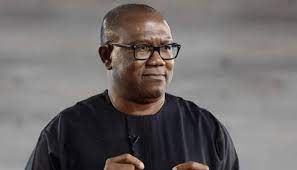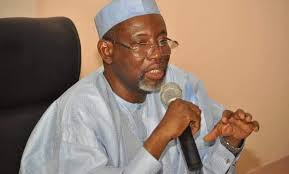The controversies surrounding the 2016 fiscal budget have generated questions about the National Assembly commitment to advancement of democracy. DONALD IORCHIR looks at the elements of an ideal parliament.
All over the world, the parliament is known to be the engine room of the democratic government.
Parliaments in the advance democracies are credited with remarkable developmental achievements. The American Congress for instance played a key role in the formulation of policies that gave the United States victory in both the Second World War and the Cold War. It is responsible for enacting the laws that created the enabling environment that made the American economy successful. And ever since the collapse of the Soviet Union, the U S Congress has continued to render bipartisan support to every American government, in the pursuit of the collective national interest.
Whenever national interest is at stake, partisan lines and vested personal interests fades away from the floors of every responsible democratic parliament. This cannot be said about the Nigerian National Assembly.
The Nigerian democracy has maintained the culture of ensuring that the Party that wins the presidency equally controls the National Assembly either by 2/3rd or simple majority since 1999. Unfortunately, the controls of majority seats by the ruling parties in Nigeria’s National Assembly never transmitted into smooth and uninterrupted democratic governance due to conflicting personal interests among members.
The majority party in the National Assembly often constitute opposition against it own government due to the clash of vested personal interests. It happened during the PDP dispensation and it is currently happening under the APC.
The APC dominated National Assembly has already proven to be the worst legislative arm in the history of Nigerian democracy. With absolutely nothing to show for it 10 months of legislative existence, the National Assembly is engrossed in selfish leadership squabbles and a despicable game of hide and seek with the national budget which was presented to them in December 2015.
The NA members initially alerted the nation on the alleged padding and conflicting figures in the budget document that was presented to them as if the entire budget was not comprehensible, only to emerge, after 3 months of wasteful deliberations, with a scanty highlights of the same budget that was presented to them by the President, carrying a marginal reduction of Seventeen Billion Naira from the original proposal.
Who is deceiving who?
To have transmitted the 2016 budget to the President without the details of the document smacks of corruption, deliberate act of sabotage, insensitivity to the yearnings of Nigerians, legislative rascality, and dereliction of responsibility on the part of members of the National Assembly. It is therefore wrong and misplaced for any right minded person to lay blame of the controversy surrounding the budget on the door step of Mr. President.
Those who genuinely or mischievously criticize this government over the poor state of electricity supply and the unavailability of petroleum products in the country are doing so either in total ignorance or despicable sentiment.
Granted that Mr. President promised to fix these problems during his campaigns, but did he give time limit to solving the problems of perennial fuel shortages and epileptic electricity supply in the country?
Can any of these critics honestly tell Nigerians how much the Buhari administration has spent so far in the power and petroleum sectors since its inception barely 11 months ago? Or do they expect the President to engage in extra budgetary spending? What has President Buhari got to do with the ineptitude of the power distribution companies (DISCOS) which has long been privatized by the Jonathan administration? Let’s call a spade a spade, and give the President a chance to deal with the power issues as proposed in the 2016 budget.
Power and petroleum sectors of the economy require massive public capital long term investments which can only commence when the national budget is fully operational.
President Buhari did not promise Nigerians that he was going to defeat Boko Haram in the first 10 months of his administration, but he did it. Critics should give him credit for this.
Similarly, the President did not promise to accumulate for Nigeria the sum of over 3 Trillion Naira in the Treasury Single Account in 10 months of his administration, again, he did it.No government in the recent past has achieved such a remarkable stride in a record time.
Not to forget that earlier, this administration provided over Seven Hundred Billion Naira as bailout funds to State Governments, after it had paid two years of subsidy arrears to the tune of over half a Trillion Naira owed by the Jonathan administration. This is a landmark achievement for a government that inherited an empty treasury 11 months ago.
When this government decided to take total control of fuel importation, it did that in good faith, as a short term measure to eliminate subsidy and other sharp practices in fuel importation. Unfortunately, the NNPC that the Buhari administration inherited from Jonathan administration does not have the capacity to import fuels into Nigeria due to poor technical and administrative structure combined with incompetent manpower, hence the current fuel scarcity.
For sixteen solid years, NNPC was so mismanaged that it could not build Tank Farms for the storage of the large volumes of fuel required to service the Nigerian market. And this is precisely why NNPC failed in its bid to import fuels into the country. Who is to blame for this failure? Of cause, those who set the nation on the part of indefinite fuel importation should take the blame.
The best this government can do in the circumstance is to go back to the drawing board and fashion out an alternative short term plan while pursuing it long term objective of refining crude oil locally with vigour.
The President’s current plan to build one refinery beside each of the existing oil refineries is the boldest step ever taken by any government in the effort to reinvent local refining of petroleum product in Nigeria.



